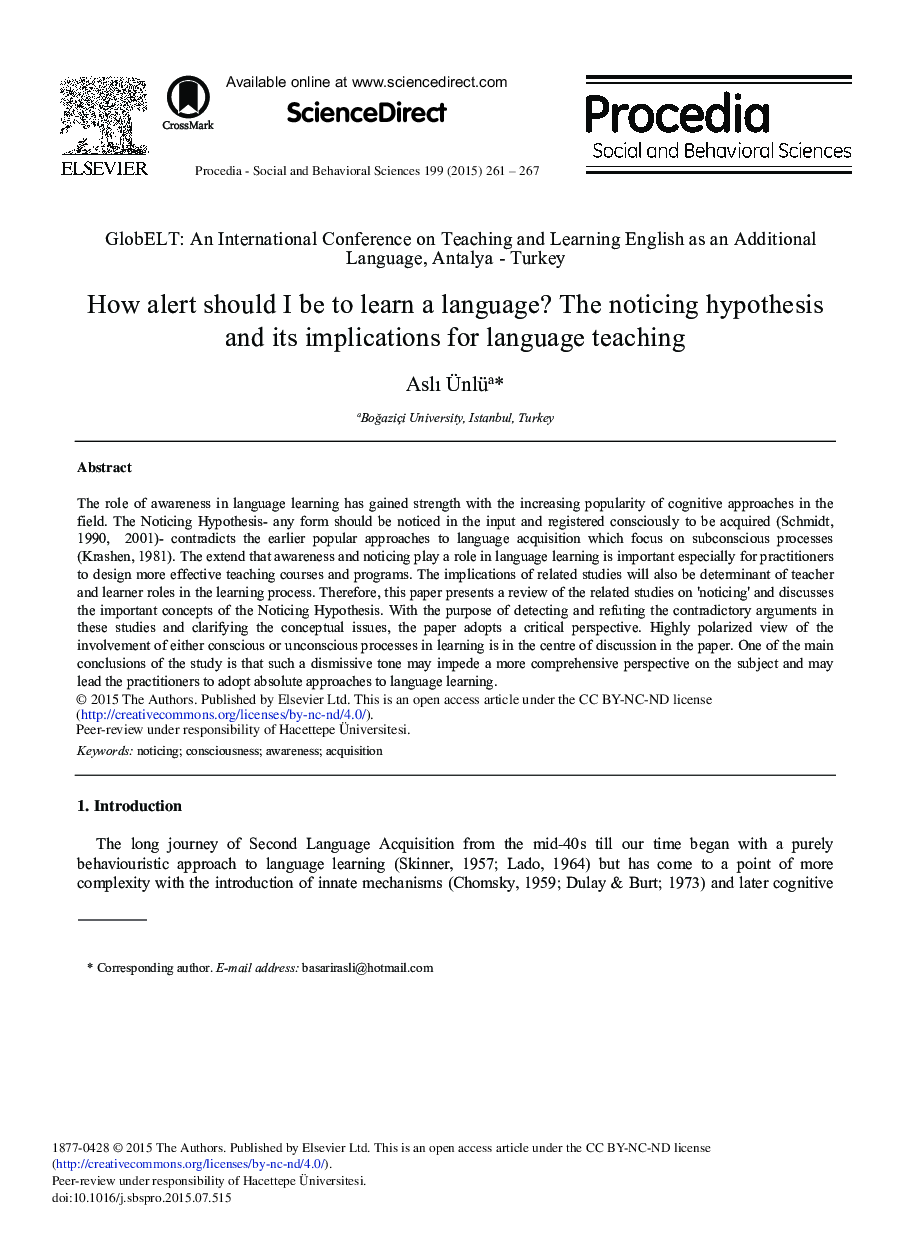| Article ID | Journal | Published Year | Pages | File Type |
|---|---|---|---|---|
| 1109784 | Procedia - Social and Behavioral Sciences | 2015 | 7 Pages |
The role of awareness in language learning has gained strength with the increasing popularity of cognitive approaches in the field. The Noticing Hypothesis- any form should be noticed in the input and registered consciously to be acquired (Schmidt, 1990, 2001)- contradicts the earlier popular approaches to language acquisition which focus on subconscious processes (Krashen, 1981). The extend that awareness and noticing play a role in language learning is important especially for practitioners to design more effective teaching courses and programs. The implications of related studies will also be determinant of teacher and learner roles in the learning process. Therefore, this paper presents a review of the related studies on ‘noticing’ and discusses the important concepts of the Noticing Hypothesis. With the purpose of detecting and refuting the contradictory arguments in these studies and clarifying the conceptual issues, the paper adopts a critical perspective. Highly polarized view of the involvement of either conscious or unconscious processes in learning is in the centre of discussion in the paper. One of the main conclusions of the study is that such a dismissive tone may impede a more comprehensive perspective on the subject and may lead the practitioners to adopt absolute approaches to language learning.
